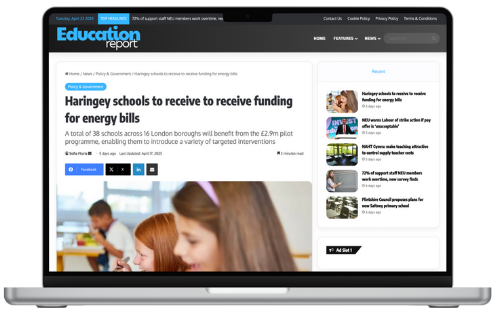Current curriculum not ‘delivering’ for every child, DoE finds
According to the new curriculum and assessment review interim report, high standards currently too often means ‘high standards for some’ rather than ‘high standards for all’

The current system is not “delivering” for every child and new four key areas of education should be the focus of the next phase of work, the Department of Education found.
According to the new curriculum and assessment review interim report, many aspects of the curriculum and assessment system are working well. However, the panel’s findings highlight that, in practice, high standards currently too often means “high standards for some” rather than “high standards for all”.
The interim report revealed that the current system is not delivering for young people with SEND, or for those from disadvantaged backgrounds, where there remains a stubborn attainment gap.
The interim report highlights four key areas for improvement. It firstly emphasises maintaining high standards by making the curriculum and assessment “more inclusive and equitable” to ensure excellence for all. It also addresses subject-specific challenges, ensuring that individual subjects provide both depth and breadth of knowledge while remaining cutting-edge.
Additionally, the report explores how education can better equip students for social and technological change, such as enhancing digital skills, media literacy, and scientific knowledge to respond to AI developments and climate challenges. Lastly, it examines post-GCSE pathways, ensuring they effectively support all young people, particularly those from disadvantaged backgrounds, in pursuing further study or employment.
Over 7,000 responses were submitted to the review team as part of an extensive engagement programme, including young people and parents, educators and experts as well as employers and wider organisations with an interest in what is taught in our schools.
The next stage of the curriculum and assessment review will develop analysis in four key areas, considering questions that have been raised across different subjects about the specificity, relevance, volume and diversity of content.
The areas will include:
- considering concerns that have been raised across subjects about the specificity, relevance, volume and diversity of content, and conduct closer analysis to diagnose each subject’s specific issues and explore and test a range of solutions.
- considering the impact of current performance measures on young people’s choices and outcomes.
- exploring level 2 and 3 pathways at Post-16, with special attention to vocational routes and support for progression.
- conducting further analysis of assessment and considering any necessary improvements.
The review expects to recommend a phased programme of work across the subjects listed in the national curriculum. This will allow reforms to be made incrementally in a way that does not destabilise the system.
The review is ongoing with a final report and recommendations due to be published in autumn.
Curriculum and assessment review lead, professor Becky Francis CBE, said: “I have learnt much from our data analysis and research, and from the fantastic response to our call for evidence. The review panel and I have a clear picture of the present state of the curriculum and assessment system.
“We have a deep understanding of where the key challenges lie and where our efforts to improve the system will see the best result in ensuring all young people are able to achieve and thrive. This evidence gives us confidence in embarking on the next stage of the review which will see us do further analysis on these issues, including subject content.”



